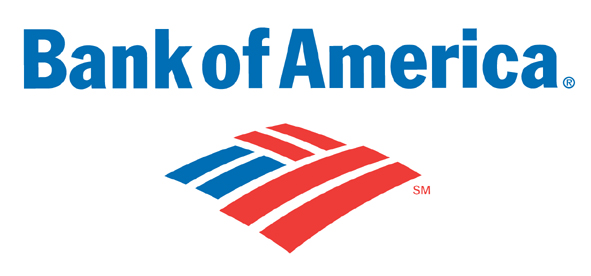
A case coming out of Superior Court in Massachusetts gives hopes to homeowners who have attempted loan modifications under HAMP (the Federal Homes Affordable Modification Program) and been delayed and given the run around by their servicers.
The case in question, Parker v. Bank of America, NA, et al., Lawyers Weekly No. 12-268-11., revolves around a homeowner whose lender attempted to foreclose on her property after allegedly delaying and obstructing her efforts to receive a loan modification under HAMP. The ruling stated that the homeowner could sue the lender as a third-party beneficiary of its agreement with the government to participate in HAMP.
The homeowner’s argument stated that borrowers were “intended beneficiaries of HAMP SPA’s (Servicer Participation Agreements). SPAs are agreements between lenders and the government and only identify parties in interest as the lenders and successors in interest.
Obstruction and Delay?
Plaintiff Valerie Parker took out first and second mortgages on her home with Bank of America as servicer at the height of the market, 2007. For two years, she made her payments on time- however, as the economy tanked, she began having difficulty. By December of 2009, Parker could no longer make payments. At that time, she submitted a packet to the bank requesting a loan modification. As many borrowers have seen in their dealings with their lenders, Bank of America allegedly assured her that they would help, but later told her that no program to assist her was in existence.
Then, in early 2010, Bank of America implemented a HAMP loan modification. In July of 2010, B of A allegedly told the plaintiff she qualified for HAMP, but then never sent her the required and requested forms and repeatedly lost the paperwork she submitted.
When Parker complied with the bank’s demand for more paperwork, the bank reportedly lost it again. Meanwhile, according to Parker, the bank made false promises of relief and gave conflicting messages as to whether she should make loan payments in the interim and in what amount.
Ultimately, Bank of America began foreclosure proceedings. At this point, Parker sued Bank of America in Superior Court, bringing allegations of fraud, negligence, breach of contract and violation of Chapter 93A, among other claims. The bank filed a motion to dismiss.
“Particularly when viewed against the backdrop of three decades that saw medium-sized banks acquiring small banks, only to be taken over by larger banks, which were then absorbed into megabanks, it is apparent that [the language in question] is just a straightforward successor clause, to be taken at face value and no more,” Judge Thomas P. Billings wrote in denying the motion to dismiss filed by the lender.
“Denial of third-party beneficiary status to persons aggrieved by violations such as are alleged here would be — borrowing the words of the [Supreme Judicial Court] when considering a different claim by beneficiaries of a federal government contract — to ‘mock the very goals of’ the program that the contract was intended to further, placing its ‘legitimacy … in grave doubt,’” the judge said, quoting the SJC’s 1989 decision in Ayala v. Boston Hous. Auth.

This ruling may be instrumental in giving teeth to the Making Homes Affordable program. Although HAMP was a good start according to many practitioners & real estate professionals, the Making Homes Affordable Program is viewed in whole as a failure, due to the fact that the program simply relies on guidelines and has little to no enforcement mechanisms built into its regulations.
“The ruling sends a message to banks that if they don’t comply with federal guidelines [regarding the handling of HAMP modification requests], they’ll be held accountable,” he said. “This encourages banks to comply and gives more potential help to homeowners and consumer advocates,” states John F. Skinner III of Manchester, N.H, who represented the homeowner.
Framingham lawyer Richard D. Vetstein, who has written extensively about the foreclosure crisis on his real estate blog, said the ruling in Parker breaks new ground.
This ruling is certainly a step in the right direction for the borrower who is frequently pushed around by large lending institutions. Framingham lawyer Richard D. Vetstein, who has written extensively about the foreclosure crisis on his real estate blog, said the ruling in Parker could be deemed as a groundbreaking case. “I hear these stories all the time — Bank of America, Wells Fargo and others losing paperwork, borrowers having to resubmit 10 times, and then the mortgage being shipped off to foreclosure, forcing the borrower to start from square one while interest and attorneys’ fees are ticking away,” said Vetstein, who was not involved in Parker. “It looks like the judge is finally throwing his hands up and siding with the little guy more and more.”
Having recognized the general viability of third-party beneficiary claims by borrowers, Billings also found that the plaintiff in Parker had adequately alleged a violation of the SPA.
Lenders are expected to respond to a HAMP application within a certain period of time and cease all foreclosure activity during the evaluation process, the judge said, denying the bank’s motion to dismiss. “Inertia is not an option.”
Let’s hope this decision will be instrumental in turning the tide for Nevada homeowners as well.
Originally reported by Eric T. Berkman, in Massachusetts Lawyers Weekly.
Tiffany N. Ballenger, Esq
.



 Treasury officials confirmed that the Administration was examining
Treasury officials confirmed that the Administration was examining 

 Nevada Supreme Court Justice James W. Hardesty announced that more than 3,400 homeowners who received notices of default have requested mediation in the Nevada Foreclosure Mediation Program as they seek to hold on to their homes. Since the program first began on July 1, 2009, 372 mediations have been conducted and another 805 mediations have been scheduled. An additional 1,401 cases have been assigned to mediators, who are working to schedule and hold those mediations within 90 days of the notices of default being recorded. Justice Hardesty announced that the statistics are current as of November 16, 2009
Nevada Supreme Court Justice James W. Hardesty announced that more than 3,400 homeowners who received notices of default have requested mediation in the Nevada Foreclosure Mediation Program as they seek to hold on to their homes. Since the program first began on July 1, 2009, 372 mediations have been conducted and another 805 mediations have been scheduled. An additional 1,401 cases have been assigned to mediators, who are working to schedule and hold those mediations within 90 days of the notices of default being recorded. Justice Hardesty announced that the statistics are current as of November 16, 2009
